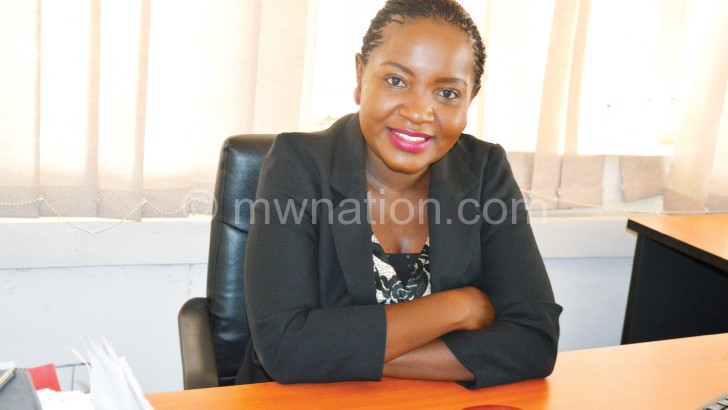‘Councillors are part of decision makers’
The role of ward councillors continues to attract mixed reactions from the general public. While some see them as a link between communities and the councils in fostering development, others feel they are a waste of public resources. Our reporter FATSANI GUNYA engages the spokesperson for the Ministry of Local Government and Rural Development MUHLABASE MUGHOGHO to find out if ward councillors are living up to the expectations. Excerpts:

is a major challenge
Q1
It has been almost two years since councillors took office. Are there improvements in public service delivery in the councils?
A1
Local Government Act 5 (1) states that in every local government area there shall be an assembly consisting of one member elected from each ward within the local government area.
This, therefore, means that, some businesses at council level were not being conducted because of the absence of councillors. It can, therefore, be said that the presence of councillors has improved council operations as well as public service delivery. For instance, with the presence of ward councillors, councils are able to enact by-laws. The secretariat alone was not able to enact and put such laws into practice. In addition, councillors are assisting in mobilisation of revenue for service delivery. In some councils like Luchenza Town, Mzuzu City and Machinga District, they have successfully revised their rates.
Q2
Is there clear separation of powers in councils between MPs and councillors?
A2
There has been a nine-year gap between the time councillors were in office to the time councillors came back in office. This created some knowledge and experience gap among other council members vis a vis council secretariat, members of Parliament (MPs), chiefs and interested groups. As a result, all council members were supposed to be oriented before and after councillors were ushered into office.
This process assisted in preparing all members towards working together with councillors. Unfortunately, due to financial hurdles, pre-trainings did not take place. Nonetheless, several training workshops took place and are still taking place after these members were ushered into office. These trainings have really helped in defining roles and responsibilities of the two members at council level.
Q3
Are councillors empowered to improve service delivery?
A3
Yes, they are empowered. Last year, Parliament approved K5 billion as District Development Fund (DDF). The move helped development funds to be channelled directly to Local Authorities [LAs]. It is upon councillors and the rest of the council members to decide which development projects to prioritise in their area. All decisions are, therefore, made at council level. This gives councillors and all council members an opportunity to decide on developmental projects that are going to bring an impact in their area. Council meetings are chaired by a mayor/chairperson. This gives councillors an upper hand as they are in control of the meeting at council level.
For instance, taking cognisance of the roads infrastructure challenges in almost all cities in the country and inadequate financial capacity of city authorities, government set aside K6 billion in the 2015/16 National Budget for improvement of the road networks in our cities. This is part of government reforms to further empower Local Authorities through devolution of fiscal budget and letting them champion developments in their areas of jurisdiction. Initially, this entire responsibility was vested in the central government. The reason for setting aside this money was that people who know where the need is should champion development.
Q4
What challenges are councillors facing?
A4
Mobility of councillors has been one of the major challenges. As you might be aware, according to their conditions of service, councillors were supposed to be given a motorcycle loan amounting to K1 million during the first month that they were ushered into office. However, government is yet to disburse these resources. Discussions are at an advanced stage and soon the loan scheme will be rolled out.
Q5
How do you rate the participation of councillors in decision-making processes at council level?
A5
Councillors have a say in physical structures within the council. They are part of the decision makers at council level. There is no development that can take place without the knowledge and approval of councillors. All policy decisions such as local government and local development policy decisions are being made through committees and council meetings.





